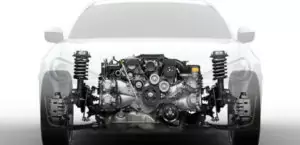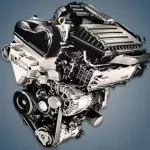The 2.0-liter Volkswagen CXDA engine has been produced by the German concern since 2016 and is installed on Atlas, Passat, Tiguan, Golf GTI models mainly for the American market. Also in some other markets, this power unit is known thanks to the Teramont crossover.
The EA888 gen3 series includes: CJSA, CJSB, CJEB, CHHA, CHHB, CXDA, CNCD, CJXC.
Specifications
| Production years | since 2016 |
| Displacement, cc | 1984 |
| Fuel system | direct injection |
| Power output, hp | 220 – 235 |
| Torque output, Nm | 350 |
| Cylinder block | cast iron R4 |
| Block head | aluminum 16v |
| Cylinder bore, mm | 82.5 |
| Piston stroke, mm | 92.8 |
| Compression ratio | 9.6 |
| Features | DOHC, AVS |
| Hydraulic lifters | yes |
| Timing drive | chain |
| Phase regulator | on both shafts |
| Turbocharging | IHI IS20 |
| Recommended engine oil | 5W-30 |
| Engine oil capacity, liter | 5.7 |
| Fuel type | petrol |
| Euro standards | EURO 5/6 |
| Fuel consumption, L/100 km (for VW Teramont 2021) — city — highway — combined |
12.8 8.5 10.1 |
| Engine lifespan, km | ~250 000 |
| Weight, kg | 140 |
The engine was installed on:
- Volkswagen Atlas 1 (CA) since 2016;
- Volkswagen Golf 7 (5G) in 2016 – 2021;
- Volkswagen Passat B8 (3G) in 2016 – 2019;
- Volkswagen Teramont 1 (CA) since 2018;
- Volkswagen Tiguan 2 (AD) since 2016.
Disadvantages of the VW CXDA engine
- This is a very reliable motor and all the problems described below are rare;
- Its weak point is a short-lived water pump with a plastic case;
- The timing chain does not have a large resource and often needs to be replaced by 150,000 km;
- At high mileage, the engine may triple due to the failure of the phase regulator;
- There have been instances of a variable oil pump wedge, which is dangerous for liners.






